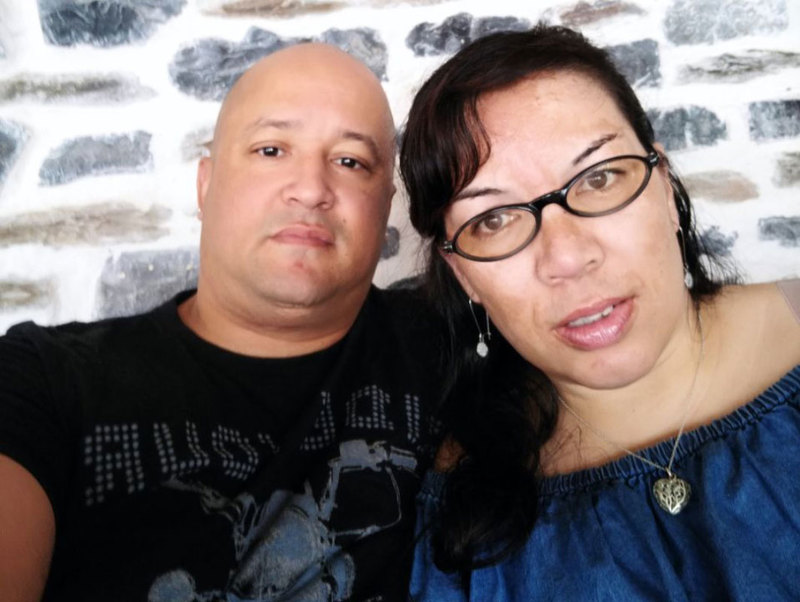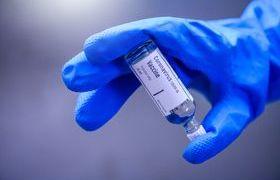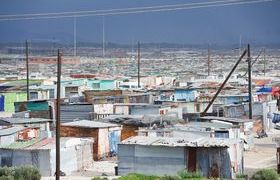Charlene Esau: my recovery from COVID-19
02 September 2020 | Story Charlene Esau. Photo Supplied. Read time 8 min.
In the past six months, the University of Cape Town community has been affected and shaped by COVID-19 in many ways. Some of our closest colleagues and students have died from the virus; others have survived, braving isolation and often lingering symptoms on their journey to wellness. We are deeply grateful to those who have chosen to share their stories of recovery. We hope these will encourage others – and provide hope.
Charlene Esau, an occupational health nurse practitioner at the University of Cape Town’s (UCT) Properties and Services department, shares her experience of having and recovering from the coronavirus.
My friend, a residence facilities officer at Student Housing and Residence Life, kept prompting me to get tested. I was in denial and blamed my cat’s fur, an imaginary mouse (I’m allergic to mice), dust, winter, the rapid changes in the weather – anything to justify not having COVID-19.
When it started and my symptoms
On 16 June I woke up feeling wishy-washy – you know that feeling when flu is creeping up on you. You aren’t sick, but you don’t have your usual level of energy. I took some vitamins, Advil CS and continued working remotely. My sense of taste and smell were completely gone, but I thought nothing of it.
By Thursday, 18 June, I started getting headaches and feeling breathless when doing minor chores. Sweeping and sanitising surfaces left me tired and drained. I had no real tight chest, but it felt like there wasn’t enough oxygen in the room. A deep, dull ache started in my back, like when you’ve been coughing your lungs out for ages. But I wasn’t coughing at all and had no scratchy throat or fever at this stage. I had no reason to think anything weird was going on.
“I felt sorry for asthmatics, now having a little bit of insight into their battle to breathe – something we take for granted.”
On Friday, 19 June, I really struggled to breathe and started using my daughter’s Theophen syrup and Asthavent pump. I was impressed by how it eased my breathing and relieved the shortness of breath. I felt sorry for asthmatics, now having a little bit of insight into their battle to breathe – something we take for granted.
From 20 June to 28 June I felt unwell. I felt terrible and my body ached. I told everybody that I was okay, but the truth is that I considered calling my oncologist to ask if it was time to go to hospital. I decided to ride it out and let the dice land as thrown.
By 30 June I used up all the meds at home (if you know me, that’s a lot of meds). I had a dry cough and a scratchy throat. I resigned myself to the fact that it’s time to stop self-medicating and get help or I may have dancing pall-bearers carrying me around. I called Discovery DrConnect and got a prescription for Azithromycin 500 and Prednisone, and a referral letter to get tested for COVID-19.
On 1 July the race began to find an open testing station. I felt very short of breath and couldn’t breathe wearing a mask. I felt nauseous, dizzy and very tired. I had no pre-existing respiratory medical conditions and I was battling to breathe. Imagine what it must be like for people who smoke or have an underlying medical condition that affects their breathing.
By 3 July I started feeling better. I spent a lot of time resting, but still had no sense of taste and smell. I hadn’t received my results from Dis-Chem, which should have been back by 7 July.
By 10 July I still hadn’t received any results and I was still coughing a bit, my throat was still scratchy and I was gradually beginning to smell and taste again. I was preparing to go to work on Monday, 13 July, because I was convinced that I had a heavy viral infection, that my immune system was not yet ready to fight off post-cancer treatment. Maybe my body was recovering slower than usual (again I started rationalising once I started feeling a little better).
“It was confirmed that I had COVID-19. I had suspected it, but seeing the result was sobering.”
On Saturday, 11 July, at 23:40 my results were sent to me via SMS. It was confirmed that I had COVID-19. I had suspected it, but seeing the result was sobering. I was grateful that I hadn’t gone anywhere, even when I rationalised not having it; however, my husband is a different story.
In fact, I think I contracted the virus from him because I’ve been working from home since lockdown started. He has on occasion gone to his work and once or twice met up with clients to resolve issues in the winelands and Ceres, which were both hotspots. When he went to Ceres, we joked that it was Wuhan Cape instead of Western Cape – we aren’t joking anymore.
We missed our daughter terribly as she was quarantined with friends while her dad and I got sick and isolated together. We went into a paranoia-fuelled sanitising and disinfection frenzy. Our cat gave us a don’t-even-think-of-sanitising-me look and kept her distance until we calmed down.
On 12 July my husband started coughing and feeling ill ... and I sent him off to get tested at Lancet, which has a 24-hour turnaround time. On the same day he got his positive result.
On 13 July I was still coughing and my throat was still scratchy. I felt a bit washed out, like the flu was starting again. How can this be? Was I not supposed to be immune? Should I call the doctor again? Was this cycle ever going to stop?
I had been symptomatic for four weeks – wasn’t this nonsense supposed to end after 14 days? Throughout this entire saga I had been working remotely from bed – my reason being that my bedroom is my working-from-home office. But the reality is that I didn’t have the energy to move and constantly felt tired.
How do you know when to get tested?
My best answer is to go for professional help when your usual home remedies and self-medication don’t work. For me personally, my usual winter survival depends on using Hot Toddy herbal capsules and Advil CS immediately when I feel flu-ish. This usually helps within two days and I go into work without needing to take any sick days. This time around, 14 days of self-treatment (seven times longer than usual) with no improvement of symptoms was a definite signal for me to see a doctor and get tested.
“Just because you have no symptoms or very mild symptoms doesn’t mean that the next person won’t get severely ill.”
My big concern now is whether I can get it again. I don’t ever want to reach the stage where I need to be hospitalised. I’ve asked friends and family not to visit anybody if they have flu-like symptoms and suggest that everybody warns others if they have flu-like symptoms. We need to protect one another by being considerate. Just because you have no symptoms or very mild symptoms doesn’t mean that the next person won’t get severely ill. I know social distancing is hard, but someone’s life depends on all of us being sensible and doing the right thing. Stay home, even if you have mild symptoms.
My six weeks with COVID-19 have been rough, and I hope that these lingering symptoms will be gone soon. I had hoped to return to work on 3 August – with full health restored. My new goals are to improve my personal fitness levels, which I’ve admittedly neglected over the past decade.
I’m happy to be back at work and trust that my family and colleagues will remain physically, emotionally, mentally and spiritually healthy as we move ahead into the final third of this year.
 This work is licensed under a Creative Commons Attribution-NoDerivatives 4.0 International License.
This work is licensed under a Creative Commons Attribution-NoDerivatives 4.0 International License.
Please view the republishing articles page for more information.










